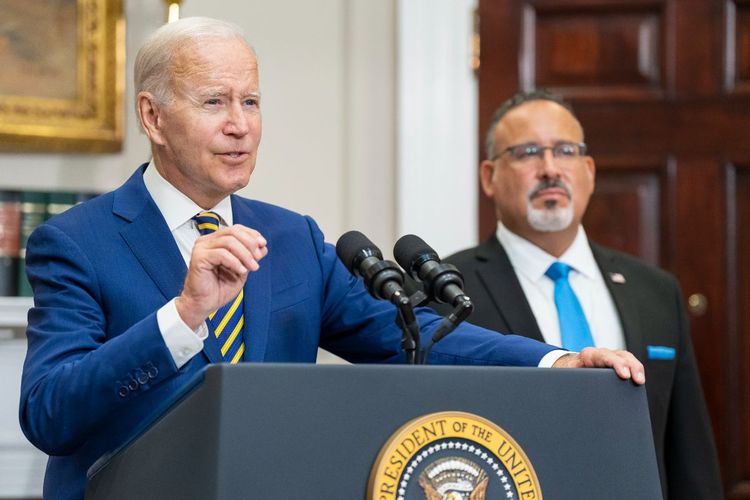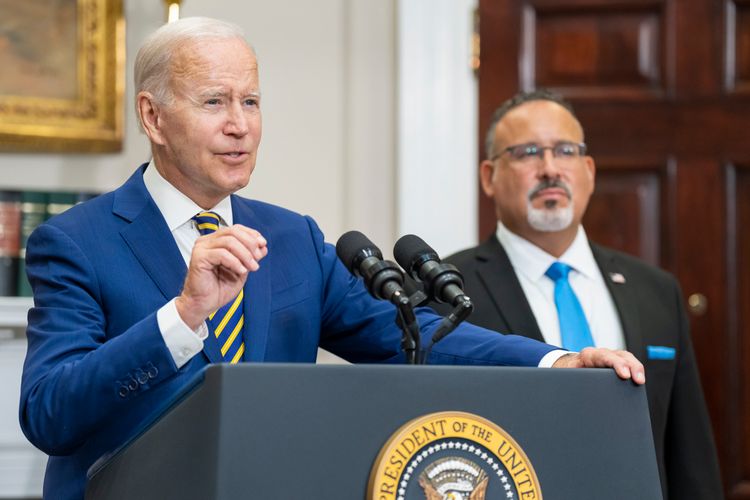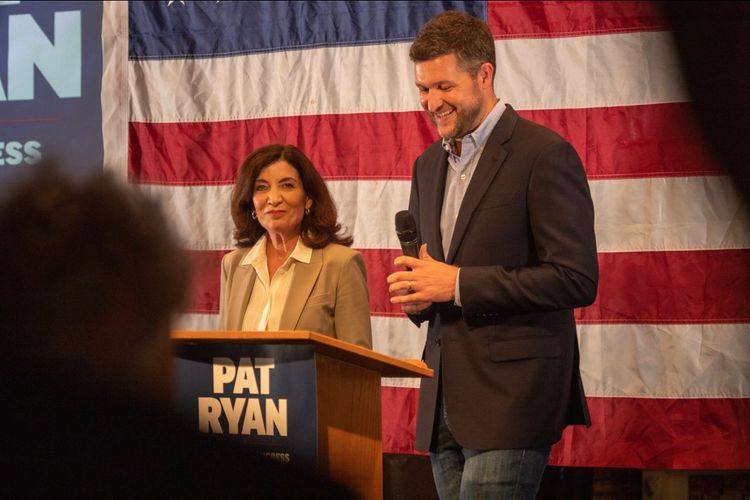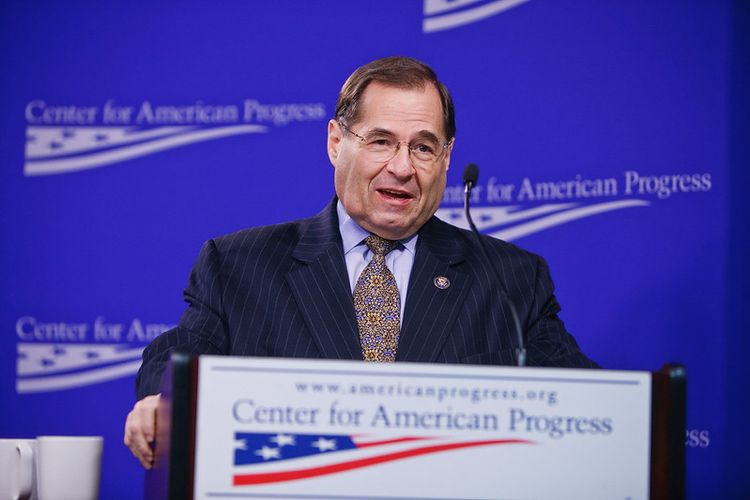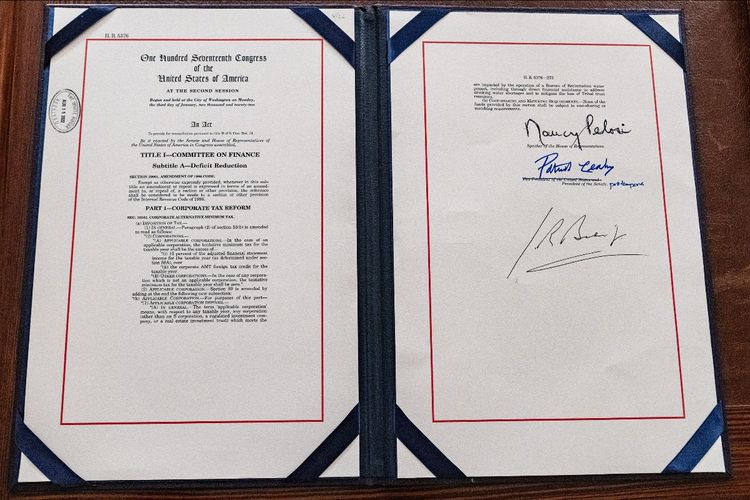Wake Up To Politics - June 22, 2020
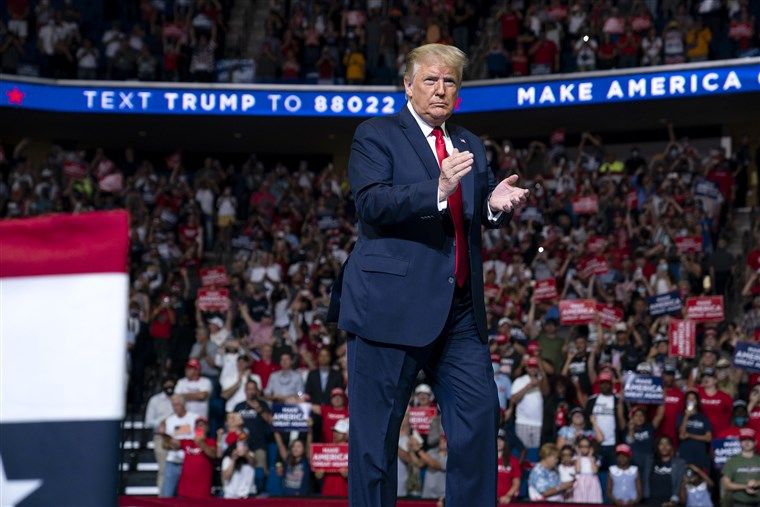
Good Monday morning. It’s June 22, 2020. 134 days until Election Day. Have questions, comments, or tips? Email me.
Trump stokes controversy from Manhattan to Tulsa
Donald Trump is in a precarious political position: trailing presumptive Democratic challenger Joe Biden almost by double digits, presiding over a worsening pandemic, facing criticism from one of his former top advisers.
But the president’s latest moves suggest that he isn’t planning a shift in campaign strategy to address these growing problems. Instead, Trump is doubling down on stoking the constant hum of controversy that has marked his White House tenure — and arguably helped lift him to his 2016 victory.
The weekend began — like many others in the Trump presidency — with a surprise departure. Attorney General William Barr announced Friday evening that Geoffrey Berman, the powerful U.S. Attorney for the Southern District of New York, was abruptly stepping down from his post and that Jay Clayton, the Securities and Exchange Commission chairman, would be nominated as his successor.
But Berman, who had overseen investigations into an array of Trump allies and associates, quickly rejected Barr’s version of events. “I have not resigned, and have no intention of resigning,” he declared in a late-night statement, pointedly adding that he planned “to ensure that this office’s important cases continue unimpeded.”
The unprecedented standoff between the attorney general and one of the nation’s highest-profile prosecutors lasted until Saturday morning, when Barr followed up with a letter announcing that Trump had fired Berman. “Because you have declared that you have no intention of resigning, I have asked the president to remove you as of today, and he has done so,” Barr wrote.
Berman relented and stepped aside accordingly — mollified in part by Barr’s reversal in announcing that Berman’s deputy, Audrey Strauss, would take over as his acting successor, not fellow U.S. Attorney Craig Carpenito, as Barr had originally signaled.
The brief Justice Department crisis had subsided, but questions remained in the air as to why Trump and Barr had acted so suddenly to remove a prosecutor who had investigated several figures — presidential attorneys Rudy Giuliani and Michael Cohen, among others — with close ties to the administration.
Those questions would follow Trump all the way to Tulsa, the site of his first campaign rally since March and his next controversial act for the weekend. According to CNN, as he monitored cable news coverage on Saturday, Trump was “disappointed to see pictures” of Berman instead of “massive lines forming outside the Bank of Oklahoma Center in Tulsa.”
Indeed, attendance at the rally — which had been promised in the tens of thousands, and which aides had reportedly hoped would lift the spirits of the frustrated president — failed to live up to the campaign’s projections. A sea of empty seats could be seen behind Trump as he spoke; an outdoor event before the rally had to be canceled, having been planned for an overflow crowd that failed to materialize. All told, about 6,200 Trump supporters attended the rally, according to a tally by Tulsa’s fire marshal.
Even with a slimmer-than-expected audience, Trump seemed to delight in addressing his supporters (few of whom were masked or practicing social distancing) against the warnings of his public health advisers and other medical experts.
The coronavirus was a frequent topic in the president’s nearly-two-hour remarks, as he jumped between controversial topics and complaints about the political and media environment. At one point, he deployed an offensive term (“Kung Flu”) to describe the virus. At another, he suggested that he had directed advisers to “slow the testing down” to limit the number of cases reported. (A White House official later said Trump had been kidding.)
The president would also draw from a grab-bag of other hot-button cultural issues, denouncing racial justice protesters as “thugs” and defending Confederate statues as “our heritage.”
Trump’s insistence on bucking medical advice to return to the campaign trail — as well as his rhetoric at the rally and his ouster of a top prosecutor — are potent clues for what the coming months of electioneering will bring. Just as in 2016, when backed into a corner and facing threats from all sides, Trump’s instinct is to reach for controversies and hope they generate enough coverage and emotion to ignite his base of supporters.
But as the president faces a polling deficit even larger than he did four years ago, the question hauntingly lingers: can such a strategy-by-fire work for a second time?
The Rundown
John Bolton, President Trump's former national security adviser, said in his first television interview since leaving the White House that Trump poses a “danger to the republic.” The interview aired Sunday on ABC News, ahead of the Tuesday publication of Bolton’s tell-all memoir, “The Room Where It Happened.”
Bolton told ABC’s Martha Raddatz that he opposed Trump’s re-election. “I hope [history] will remember him as a one-term president who didn't plunge the country irretrievably into a downward spiral we can’t recall from,” the ex-diplomat said. “We can get over one term... Two terms, I'm more troubled about.”
A federal judge ruled Saturday that the Justice Department could not block Bolton’s book from being published; however, the judge did leave open the possibility that Bolton could be punished for including classified information in the memoir.
President Trump confirmed a key allegation in Bolton’s book, telling an interviewer that he held off on sanctioning China for its internment of Uighur Muslims because of ongoing trade talks. “Well, we were in the middle of a major trade deal,” Trump explained to Axios in an interview published Sunday when asked why he waited to punish China for its human rights abuses.
Bolton wrote in his memoir that Trump told Chinese President Xi Jinping that he “should go ahead with building the [Uighur concentration] camps, which Trump thought was exactly the right thing to do.”
Trump also told Axios that he was reconsidering his support for Juan Guaidó as the legitimate leader of Venezuela and “would maybe think about” meeting with dictator Nicolás Maduro.
The world’s largest one-day increase in coronavirus cases was on Sunday, the World Health Organization reported. According to the WHO’s count, more than 183,000 new cases of the virus were confirmed throughout the day. The most new cases came in Brazil (54,771), followed by the United States (36,617).
In the U.S., 23 states are reporting a rise in new coronavirus cases compared to last week, according to the New York Times; since Friday, 12 states have reported one-day records for their increases in cases, according to ABC News.
As of 7 a.m. Eastern Time, more than 2.28 million cases of the virus have been reported in the United States, per John Hopkins University; nearly 120,000 Americans have died from the pandemic.
Daybook
*All times Eastern
President Donald Trump will have lunch with Vice President Mike Pence at 1 p.m.
Pence will also lead a teleconference with governors on COVID-19 response and recovery at 11 a.m.
The Senate will convene at 3 p.m. and vote at 5:30 p.m. to advance the nomination of Cory Wilson to be a U.S. Circuit Judge for the Fifth Circuit.
- When confirmed later in the week, Wilson will become Trump’s 200th successful judicial nominee, a number far outpacing any modern president at this stage of their administration.
The House will meet for a brief pro forma session at 11 a.m.
The Supreme Court will release orders at 9:30 a.m. and opinions at 10 a.m.
- The court could release opinions in one or multiple hot-button cases, focused on issues such as abortion, President Trump’s financial records, and the Electoral College.
Democratic presidential candidate Joe Biden will attend virtual fundraisers.
Thanks for reading! If you enjoy Wake Up To Politics, please consider donating to support me and my work, listening to my podcast with St. Louis Public Radio, and spreading the word about the newsletter to your friends and family. If this newsletter was forwarded to you, go to wakeuptopolitics.com to subscribe and learn more.

